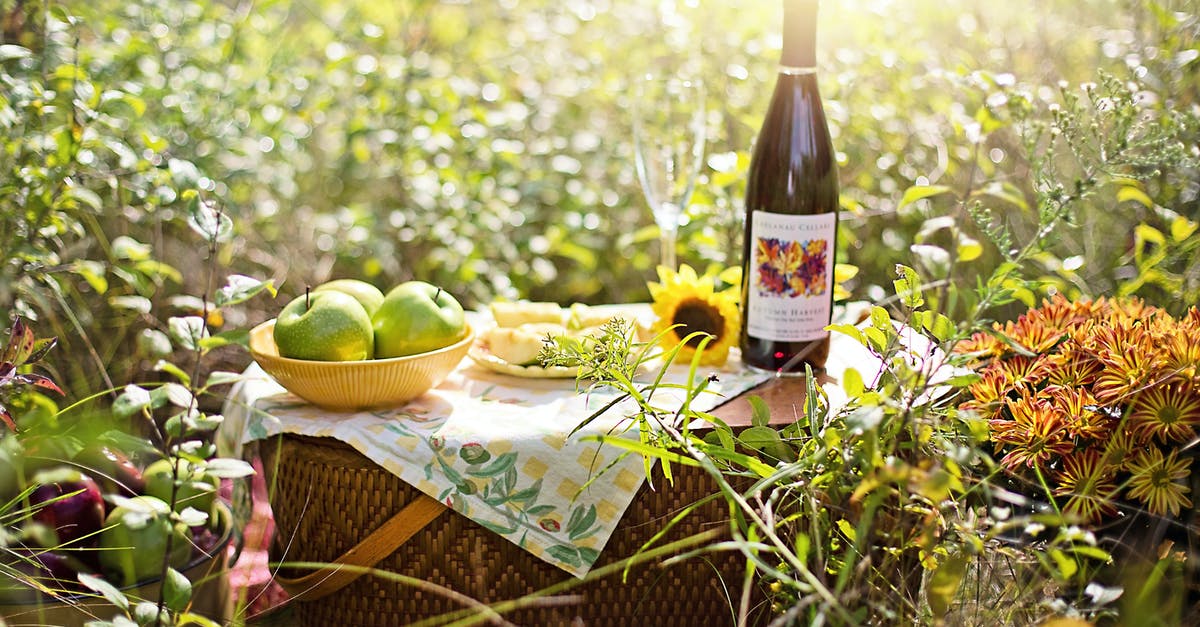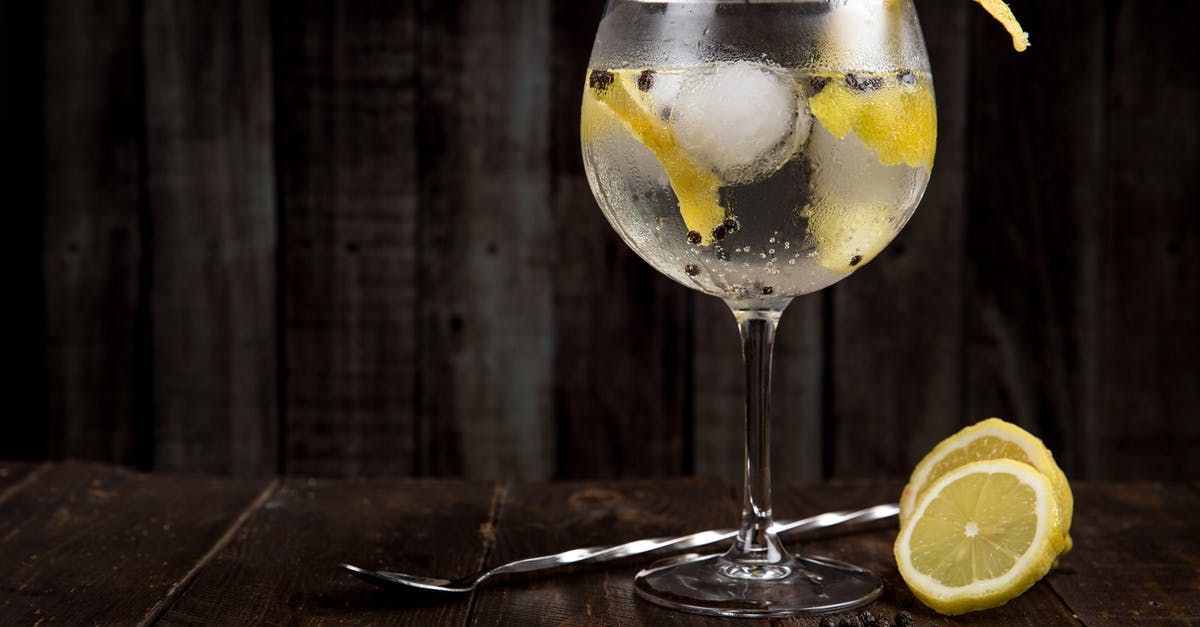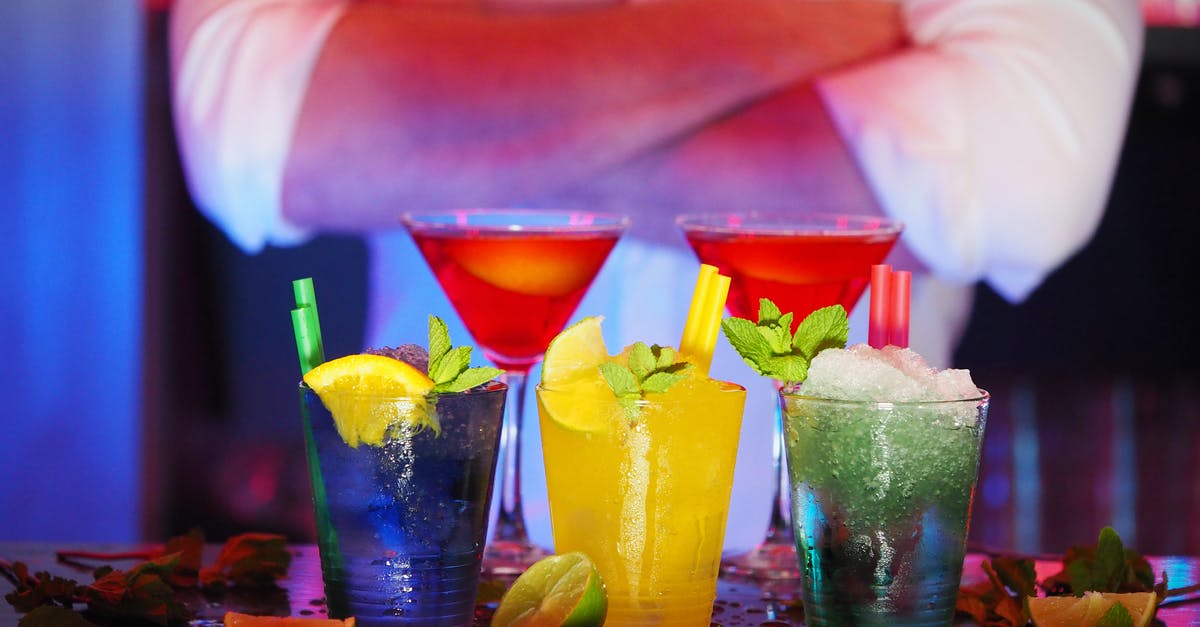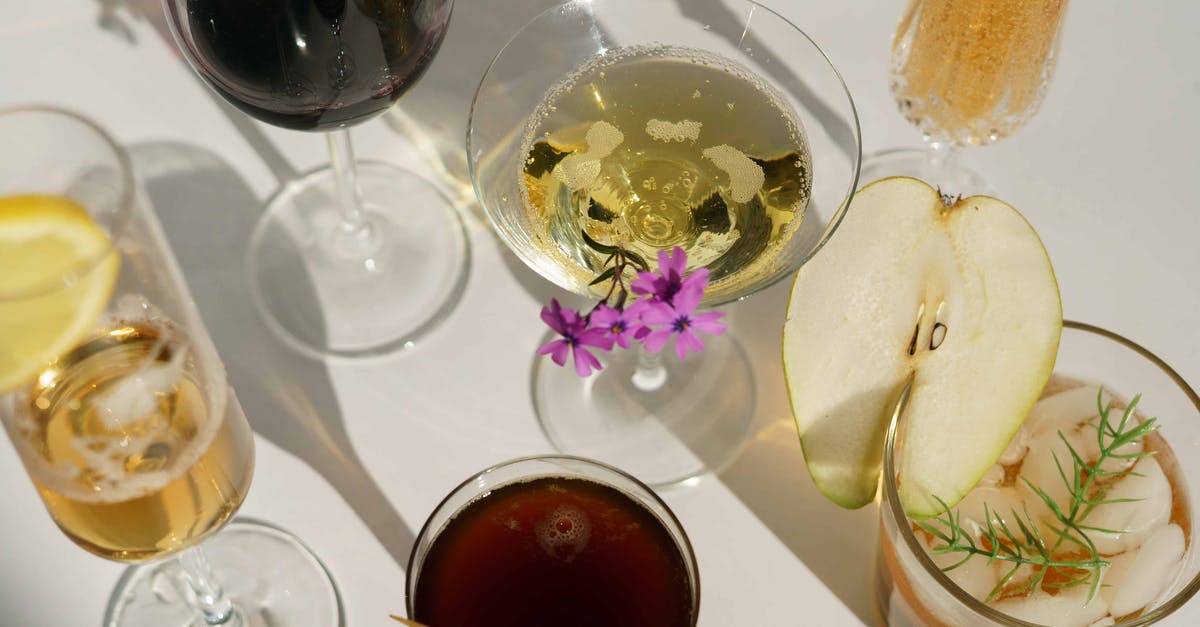Soaking fruit in alcohol

I thought that soaking fruit in whiskey would be tasty so last night, I filled a mason jar with pear pieces and filled it up with Jack Daniels.
- What is the optimal amount of time this should be soaking?
- Is it better to soak it refrigerated or at room temperature?
- Are some types of liquor better than others for this? Clear (vodka) or colored (whiskey)? Should I use higher proof liquor (e.g. 90-100 proof whiskey).
Best Answer
The optimum amount of time depends on what you want to achieve:
- If you aim for alcohol-infused fruit, you should be fine with a short time. The taste of the fruit will start to change after only a few hours (think of soaking fruit for a punch), from then the extraction of fruit flavours into the alcohol continues. For this approach, choose a liquor that complements your fruit because it will remain quite discernible.
- A good middle ground is usually reached after two (soft fruit) to eight (harder fruit) weeks. The alcohol should have absorbed a good amount of fruit flavour but the fruit keep enough to be still tasty. Just sample a bit occasionally until you reach the desired state.
- For flavoring alcohol you want to soak for a minimum of six weeks, but here often longer is better. The taste will change over time, usually getting "rounder" or even change significantly from the original taste of the chosen fruit + alcohol combination. The fruit may or may not be tasty after this time, but usually should have given up most aromatic compounds into the alcohol - alcohol is a solvent, after all. Because you aim to take the flavour from the fruit, you can go with a "neutral" kind of liquor here, but you may just as well use something with more character. I currently have a batch of quince liquor made with only the peels and cores (in Korn) in my storage area that has been there for four(!) years. It has developed beautiful undertones of almond, vanilla and honey and is ready to be strained whenever I have a bit of free time.
Another element to consider is the fruit-to-alcohol ratio:
The less alcohol is present, the less solvent is there to draw the aromatics from the fruit. This means, for flavoured fruit, barely covering them is enough while to "fully" extract the fruit you might go for a liquid level that is up to twice as high as the fruit in your container.
For longer soaking times, the alcohol content is crucial. I learned that everything over 40 %vol (= 80 proof) should be fine to keep the fruit from spoiling during extraction even at room temperature. Use higher proof if using a higher (soft) fruit content w/o sugar if you plan on soaking long term. But always use unblemished fruit. Not only to ensure the shelf life of your product, but also because even slight traces of an "off" taste can be amplified and and spoil your whole batch.
The addition of sugar is optional, keep in mind that your fruit bring sugar, too. Sugar may speed up the extraction process a bit because it helps breaking down the cells. This may or may not be desired. Also, sugar acts as a preservative, so it's recommended for lower-alcohol concoctions.
If you like the results of your pear experiment, you might consider setting up a "Rumtopf" as an ongoing project for summer:
Starting in June with strawberries, layer about 1/2 to 1 pound of fruit with 1/2 the weight of sugar in a large jar, cover with rum (preferably 110 proof) and weigh down with a plate. Rum should be always 1 inch above fruit level. Close the pot and store in a dark space if the pot is not opaque. During summer, top up with more fruit and sugar whenever they are ripe (cheries, peaches, raspberries, pears, plum...). Start serving 6 weeks after the addition of the last fruits.
Pictures about "Soaking fruit in alcohol"



Quick Answer about "Soaking fruit in alcohol"
When Soaking Fruit in Alcohol, How Long Should You Soak It? You can soak your fruit in alcohol for as little as an hour or as long as three hours for the best flavor, but I've found that three hours is the best balance in terms of taste for an alcoholic fruit salad.What happens to fruit soaked in alcohol?
The taste of the fruit will start to change after only a few hours (think of soaking fruit for a punch), from then the extraction of fruit flavours into the alcohol continues. For this approach, choose a liquor that complements your fruit because it will remain quite discernible.What is the best fruit to soak in alcohol?
The Ultimate Guide to the Best Alcohol + Fruit Combinations for Boozy Treats- Pineapple + Rum. Domestic Superhero. ...
- Coconut + Rum. Bonappetit. ...
- Mango + Champagne. ...
- Watermelon + Beer. ...
- Strawberries + Vodka. ...
- Raspberries + Champagne. ...
- Oranges + Brandy. ...
- Peaches + Bourbon.
Does alcohol soak into fruit?
For most people, fruits provide a refreshing, sweet and healthy snack. Most fruits contain a lot of water, so if some of the water can be pulled out of the fruit, the fruit can absorb any type of alcohol that it is dipped into.What do you call fruit soaked in alcohol?
Maceration is a process of breaking down and softening various substances. In food preparation, the process most often occurs when soaking fruit in sugar, alcohol, or other flavored liquids with the goals of softening and flavoring the fruit.Fruit Infused Vodka
More answers regarding soaking fruit in alcohol
Answer 2
In my experience, there are many factors at play.
Proof Higher-proof results in faster infusion. I once did strawberries in 150 proof vodka with sugar and it was intensely infused within weeks, and never really dramatically changed after that. However, you may need to dilute the product substantially to get something drinkable. (I almost always used the strawberry one in mixed drinks, but there was so much water extracted from the strawberries that the alcohol content seemed to perceptively shift lower). I would never use lower than about 70 proof liquor due to the fact that, after water from the infused fruit, and sugar additions are considered, you lower the overall proof, and the stability of the quality (and possibly safety) of the fruit comes in to question the lower the net proof is.
Temperature With sufficient proof, room temperature is just fine. High-proof alcohol has a preservative effect. The lower limit is probably a net 50 proof, after considering the adjustment effect your fruit's water and sugar content have, although food safety experts might recommend a higher number.
Sugar Less added sugar will require longer periods of infusion before you have satisfying results, especially with infusions that most people expect to be sweet (ume, an apricot variety frequently mistranslated as "Japanese plum", apricot, peach, etc). I can get satisfying results in 3-6 months with most fruits when I have high sugar content, but it may take 6-12 months to get a well-rounded flavor if the sugar content is low.
Material infused Herbal infusions, chilies (habanero is the one that I've tried), and so on obviously don't typically have added sugar, but their flavor develops rapidly in the first few weeks and only matures slightly after a a few months, because there's not much more flavor to extract after that.
Liquor variety affects flavor perception, but what you should use should depend on your desired end result. 90% of the time I'm trying to highlight the fruit, so a neutral vodka is fine. But I've used tequila for habanero, gin for a lemon-lychee infusion, and I typically like an inexpensive aged rum for things like jujube dates (which I cut and cook in syrup before infusing), because it adds a bit of wood and still has a flavor profile that matches the fruit nicely. My friend told me his mother-in-law made ume-shu in Remy Martin VS cognac, which he said was the best ume-shu he's had, but essentially what you're buying there is some free (as in time) aging in wood, which adds some nice flavor notes.
Answer 3
I've been diffusing fruits in alcohol myself and serving them to friends and family that come over. I've tried a few different fruits but not all were good after allowing them to sit for days. Pineapple is the best I use clear vodka Seagram's vodka. I've using the 16oz mason jars and the half size Mason jars. I fill the jar with fruit and then fill the vodka almost to the neck and finish it off with just a tad bit of 100% dole pineapple juice. #Lovely I've gotten lots of compliments.
Sources: Stack Exchange - This article follows the attribution requirements of Stack Exchange and is licensed under CC BY-SA 3.0.
Images: Jill Wellington, Toni Cuenca, energepic.com, Dziana Hasanbekava
